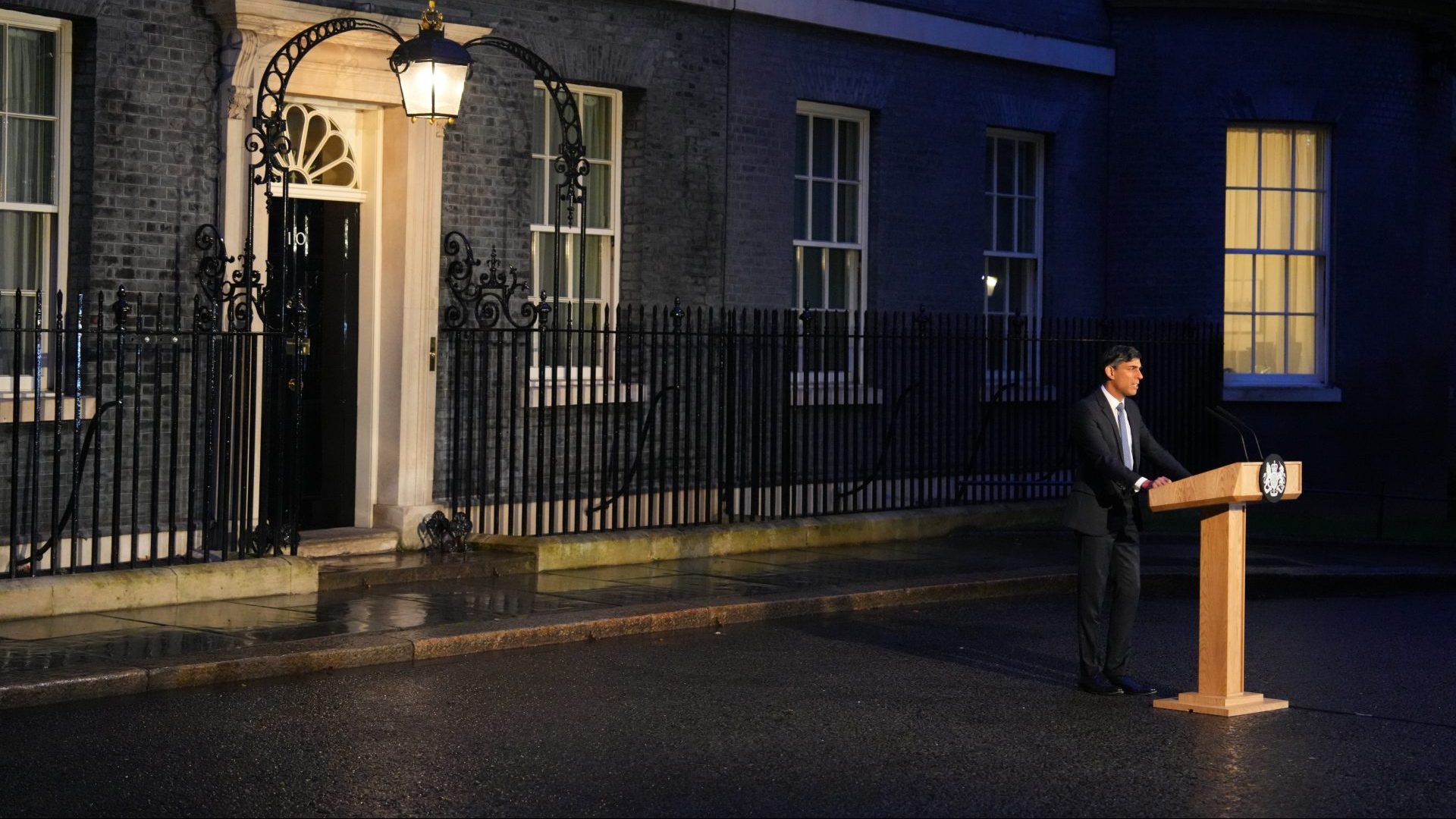Whatever else might be said about Rishi Sunak, he’s not known for political showmanship so his dramatic night-time address to the nation outside 10 Downing Street on the “extremist” threat to our democracy had even some of his closest friends wondering who’d put him up to it.
Mandrake simply reports as fact that a few days before the theatrics, the PM had met with Paul Dacre, the Daily Mail’s wily 75-year-old editor-in-chief who has made little secret of how he dreads a landslide win for Labour in the next election.
“The meeting lasted about an hour,” says my man in Downing Street. “It came about at Dacre’s behest.”
Sunak could of course have talked about extremism at just about any point since he took office, and using George Galloway’s by-election victory in Rochdale as the peg seemed to accord the maverick politician absurd significance.
Sunak’s statement on a Friday night could not, however, have been better timed for the Mail, just ahead of the print deadline for their highest-selling Saturday edition. Staff on the paper say they were struck by the ease with which the front page – beneath the headline “Rishi delivers speech Britain needed to hear” – was put together.
“What also raised eyebrows was that Quentin Letts – Paul’s favourite writer, who generally likes to be left undisturbed with his family at his Hertfordshire pile towards the end of the week – filed that front-page story very quickly and with a lot of phrases that had been very carefully polished and thought through,” says my informant.
While other papers, such as the Financial Times, felt Sunak’s statement didn’t merit any acknowledgement at all on their front pages, the Mail chose to run extensive coverage, too, on its inside pages, and a leader column that portrayed Sunak as “protecting” the country.
The theme was taken up the next day by the Mail on Sunday with another front-page story, several inside pages and a leader that said how right Sunak had been to warn the nation against these “forces.”
My Mail contact adds that if Sunak’s statement had been choreographed from their office, it wouldn’t have been unprecedented. “Quite frankly, the Tories have sometimes got a bit too dependent on us,” he admits.
“Ahead of the 1992 election, David English was editor and he was on a skiing holiday when one of John Major’s flunkies called to ask what he could do to help them make some headway in the polls. David had to gently explain that wasn’t how things were normally supposed to work.”
No doubt Dacre, Sunak and the Tory grandee Lord Marland, with whom Dacre has also been consorting lately, will be studying the Tories’ next polling figures with interest.
Mandrake was first to raise questions about Akhil Tripathi, the generous supplier of private jet travel for the prime minister. Tripathi is now being pursued through the courts by aggrieved investors in his start-up business Signifier Medical Technologies. They include Alan Howard, the billionaire co-founder of Brevan Howard Asset Management.
Tripathi denies any wrongdoing, but this is all getting a bit awkward for Sunak since Howard is a big donor to the Tory party.
I’ve been in touch with Emily Thornberry, Labour’s shadow attorney general, who noted that I’d reported how Sunak had repeatedly changed his version of events about how he paid for his jet travel. She says it’s time the PM provided “a full and honest account” of how he ended up on a plane furnished by Tripathi.
Thornberry wants to know on what basis he gained access to “the highest levels of government” and what checks were first made on his background.
Questions I put to Wayne Bontoft in the Downing Street press office in January about Tripathi remain unanswered, even though he did assure me he would get back to me “as soon as possible.”
Mandrake would advise Lord Michael Grade, chair of the broadcasting regulator Ofcom, to start clearing his desk if Labour take power. Sir Keir Starmer and his culture and media shadow Thangam Debbonaire believe he has allowed GB News to play fast and loose with the impartiality rules that bind other broadcasters.
Ofcom has been very tardy at looking into 13 complaints about bias made against the channel, which employs several Tory MPs as presenters, sometimes interviewing other Tories. Jacob Rees-Mogg earned a staggering £324,000 last year for his weekday show.
Ennobled by the Tories, Grade was a controversial choice to take charge of the quango in May 2022 after their preferred candidate Paul Dacre failed at the selection panel. While Grade is now officially a non-affiliated peer since he got the Ofcom gig, his political views have seldom been in much doubt.
Top of the wish list, I am told, is Beeban Kidron. She initially made TV series, including an adaptation of Oranges Are Not the Only Fruit while also directing the second Bridget Jones movie. After being appointed to the Lords by Gordon Brown, she has immersed herself in the communications world as a key member of the Lords Digital Technologies Committee.
Also being considered is another cross-bench peer, Martha Lane Fox, who made her name in the initial dotcom boom before setting up the Cabinet Office’s Digital Public Service unit. She has also served on the board of Channel 4.
After my disclosure that Boris Johnson and his family have once again been availing themselves of the hospitality of the Canadian tycoon Sam Blyth – staying at his Dominican Republic estate for free – a reader contacts me to say he was on the same flight back to the UK with the well-known freeloader and it did not pass without incident.
“Johnson was last to board with his family, and, once they were settled in first class, he seemed agitated that the plane didn’t immediately take off and asked a stewardess to explain the delay,” he tells me. “She said there was ‘an issue,’ but didn’t go into any further explanation. Johnson looked livid. He was acting like he was the president getting on to Air Force One and expecting take-off to happen immediately.”
It then became clear what the stewardess had been alluding to when about half a dozen police officers charged on to the plane, and, much to the disappointment of my informant, chose not to forcibly remove Johnson from the cabin, but a man sitting not far from him. The police raid had apparently been connected to allegations of drug trafficking.
Blyth, incidentally, was the chap who offered to guarantee an £800,000 loan facility for Johnson in the scandal that precipitated the resignation of the BBC chair Richard Sharp. Blyth subsequently appeared on a confidential list of four candidates recommended by the Foreign, Commonwealth & Development Office to run the British Council on £250,000 a year.




